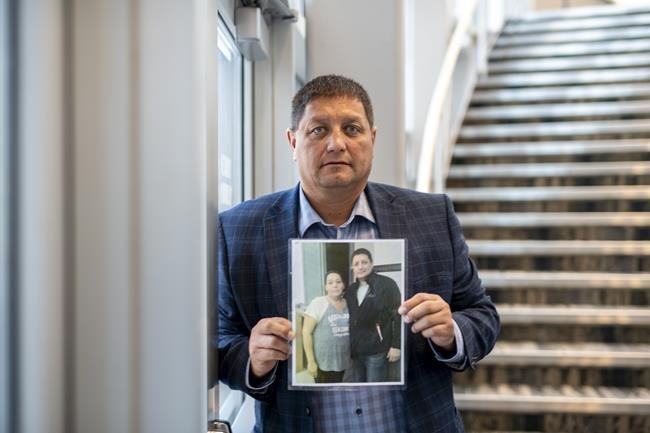TORONTO — More Indigenous-led services are needed to help communities deal with tragedies and mental health issues, an Indigenous leader who lost loved ones in the Saskatchewan stabbing rampage said Friday.
Saskatoon Tribal Council Chief Mark Arcand – whose sister, Bonnie Burns, and nephew, Gregory Burns, were killed in the attacks earlier this month – told a national summit on Indigenous wellness that such services were crucial to supporting families affected by what took place on the James Smith Cree Nation and the nearby village of Weldon.
"We put in mental health workers, we put in elder services, we put in transportation to and from the hospital, we provided meals," said Arcand.
"We even threw kids a birthday party, we brought out the city fire department. The kids were so happy to come on the fire trucks... it kind of let them forget about what happened back home."
At the summit, which took place in Toronto, Indigenous leaders shared knowledge, resources and solutions for issues such as mental health, substance use, lack of housing and suicide prevention.
Arcand said Indigenous-led services, like some of the programs offered by his organization, allow for nuanced supports and resources that account for issues such as intergenerational trauma from residential schools. Existing services -- like systems in place for incarceration, child welfare and health care -- have historically abused people from First Nations, he added.
"These are things that people forget to understand, that they look at us different as First Nations people," said Arcand.
"But when we as a First Nations organization is Indigenous-led, I can talk the same language as another First Nations person and have a quicker understanding and a better response time compared to a non-Indigenous organization that doesn't understand."
Speaking at the summit, Arcand discussed the effectiveness of some of the Saskatoon Tribal Council's community-based services, including their Health Bus program, which brings paramedics, mental health teams and dental services directly to members of First Nations communities who experience barriers to health services in urban areas.
The Saskatoon Tribal Council services over 25,000 people from First Nations, as well as non-Indigenous people, Métis people, newcomers and whoever else needs support, he said. The tribal council also runs a homeless shelter in the city.
Arcand also said he supports the creation of a First Nations police force, as James Smith Cree Nation Chief Wally Burns called for following the stabbing attacks.
"First Nations reserves and infrastructure is not there, or proper services, but these are things that need to be addressed," Arcand said. "Unfortunately, it takes a tragedy for people to wake up and it's got to stop. It's got to be preventative instead of reactive."
Prevention and harm reduction were major themes at the summit, which Arcand said mimicked the function of Indigenous-led services, where experts and community workers can provide culturally-relevant support that is self-determined.
Indigenous Services Minister Patty Hajdu said Friday's meeting, which she hopes to make an annual event, was the first of its kind to bring together Indigenous leaders and community experts from all over Canada to share resources and knowledge.
Hajdu said the summit aimed to bring together people who are designing programs "through the lens of Indigenous experience, reality and connection to old age tradition, that are actually having more effective outcomes than Western-imposed programs that for far too long Indigenous people have suffered through."
However, she added that an important function was to allow community workers to connect and support each other.
The minister said her office plans to gather findings from the summit and apply them to programs, services and funding models offered through the federal government.
Carolyn Bennett, federal minister of mental health and addictions, said she was particularly interested in proposals for mental health response teams that include elders and knowledge keepers, as well as respite care to allow caregivers to rest and prevent burnout.
Bennett said there's interest in holding a second Indigenous mental wellness summit in Saskatchewan.
"But what today is about is preventing those [tragedies] in terms of people who have been damaged, in terms of perpetrators, as well as victims," she said.
"This is about prevention and about wellness and letting everyone have the tools and the pathways to be as healthy as they possibly can be -- mentally, physically, emotionally and spiritually."
This report by The Canadian Press was first published Sept. 23, 2022.
Tyler Griffin, The Canadian Press



